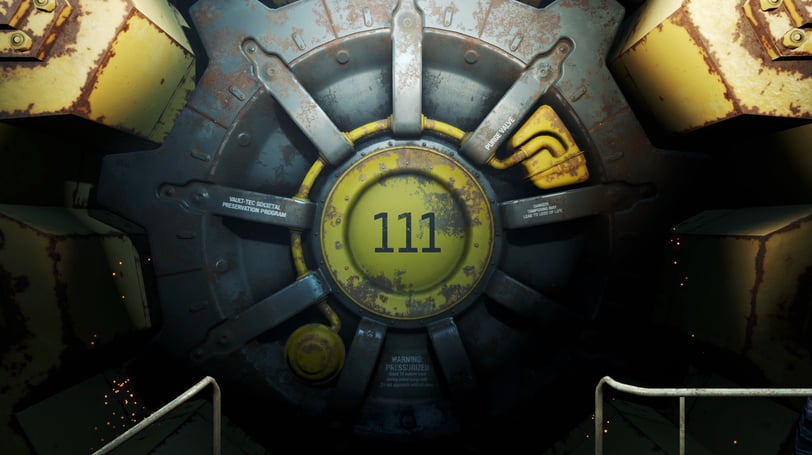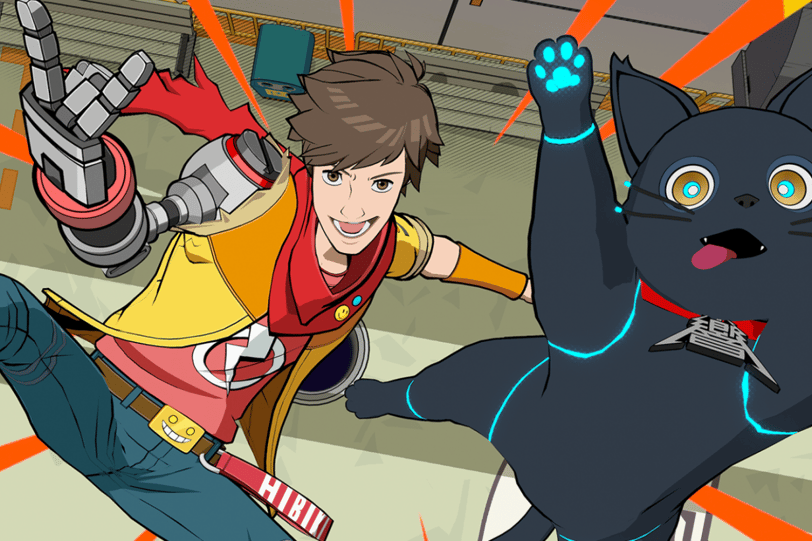Do I even want to play video games anymore?
CULTUREFEATUREDVIDEO GAMES


The industry is in turmoil, games are becoming blandathons, and even the few sparks of hope are coming out far less regularly. Is there really much point being a fan of video games in 2024?
I’ve always loved video games. Some of my fondest (and earliest) memories involve the medium.
I remember the excitement of playing the scene in ‘Harry Potter and the Philosopher’s Stone’ on Christmas morning where you hurtled through Gringotts’s Bank on a goblin cart that felt oh so real. I remember waking myself up at 3 am whilst my parents slept to power my way through the original Spyro. I remember playing Star Wars: Battlefront with my brothers all night after our grandma died.
Video gaming has always been my go-to hobby. When I want escapism – video games. When I want to be engrossed in a story – video games. When I want to catch up with friends – video games.
But, right now, I look through Game Pass, or I look through my mountains of purchased titles, and I just feel a nothingness. It’s not that the games are necessarily bad, but there are so few games that have excited me or pushed me to play them.
Too often I find myself playing through what I see as ‘time waste’ games. These tend to be simplistic titles with an engaging core gameplay loop but don’t evolve the medium or try to wrap you into an engaging tale. To me, this could be a ‘Fifa (sorry, EA Sports FC)’, or a ‘Brotato’, or a ‘Rocket League’.
Now, that’s not a slight on those games. They all have their merits, but they fall short in my usual wants for a game. I love film, TV, books, podcasts, comics, music, poetry, and basically every artform out there, but I never have enough time. So, normally, when I decide to do one of the above, I want to feel like it’s been a meaningful experience.
Games like The Last of Us or Mass Effect have such great characters and stories that they’re on par with any prestige television or blockbuster movie – as proven by the TV adaptation of The Last of Us quite happy to use its story wholesale.
Games like Elden Ring or Gears of War focus more on the gameplay loop but still present remarkable achievements that showcase the talent of the developers.
Games like The Witcher 3, Baldur’s Gate 3, or Cyberpunk 2077 have world-building that’s second-to-none, that pulls you into their worlds more so than any non-interactive medium ever could.
And then we have VR. Bringing games even closer to reality. Sure, Beat Saber scratches that same itch I had all those years ago for Guitar Hero. But look across to the Resident Evil VR modes or Half-Life: Alyx for the possibilities within the medium.
Video games are incredible and for decades they’ve been the most exciting out of all the mediums with the most innovative ideas, pushing technology forwards at alarming rates, and delivering experience after experience that left an indelible mark.


Image Credit: Bethesda
Part of me wants to believe that this is just my rose-tinted spectacles. That I only believe video games used to be better because I was younger and more naïve. And, sure, I haven’t forgotten about the piles of film tie-in shovelware that littered the previous generations, but I remember when Rockstar was able to release more than one game per generation. When Bethesda managed to release Oblivion, Fallout 3, and Skyrim in five years. That’s an ambitious release schedule for one game nowadays.
There’s a multitude of reasons why our modern games take so long to make. Be that good things like the fewer studios willing to crunch their developers to force the game out. Technically good things like the graphical capabilities of modern hardware. Or purely bad things like the pressure for games to be huge behemoths that you never let go – either forcing in enormous and often vacuous game worlds, spray painted with objective markers, or with hefty microtransactions interrupting or slowing the gameplay, coercing you to spend more.
This leaves us in situations such as when the Fallout TV show was released the most modern Fallout game you could play was released in 2018, and the last true single-player Fallout game – you know the type of game that made the franchise so big to begin with – came out in 2015.
There’s nothing wrong with playing older games, and I enjoyed my trip back to New Vegas, but why is there going to be, at best, a fifteen-year gap between single-player Fallout games? As a fan, that’s excruciating, and it’s an itch that’s not scratched by an MMO masquerading as a Fallout game. (Though, for the record, Fallout 76 is a much-improved experience in 2024.)
Fallout is not the only franchise to have fallen victim to studios shifting genres to go on whale hunts. Bethesda ventured there earlier with the Elder Scrolls Online. Rocksteady shot their legacy in the face with Suicide Squad Kills the Justice League. Naughty Dog has wasted years trying to get a The Last of Us multiplayer game going. And EA brought out what’s still the worst offender in Star Wars: Battlefront 2.
Now, I have nothing wrong with these games per se. I wish not to gatekeep anyone’s enjoyment of them. But why is the industry so transfixed on hurtling in that direction? Why have we shifted so dramatically as an industry to focus on this multiplayer time and money sinks?
I realise I’ve answered my own question. Game development is long, hard, and expensive, and even if more live service games fail, the success for the ones that work far outweigh the risks.
The single-player games we do get from AAA studios then try to compete with these time sinks. So, all games must have big open worlds, an eighty-hour story, DLCs, cosmetic microtransactions, pre-order deals, and every gameplay mechanic known to man.
There are so few AAA games that don’t resemble what we think of as the ‘Ubisoft’ formula. Most genres have just become variants of this. There are exceptions, of course, but most Sony first-party titles in the last decade have felt similar. Naughty Dog is the exception – but even they had open-world sections during their last two games.


Image Credit: Tango Gameworks
Survival Horror seems the genre to have most resisted falling prey to this. Perhaps because the genre just doesn’t work all that well in big open spaces. Ghostwire: Tokyo and The Evil Within 2 are outliers though – and both from Tango Gameworks.
Which neatly brings me on to my next, and arguably most important, point. Why should I keep being a fan of video games when the industry itself is breaking apart at the seams?
Microsoft recently announced the closure of three studios including Tango Gameworks, and the consolidation of another. This was met with widespread disdain, but it hasn’t stopped Square Enix from announcing its own layoffs since and has not helped then tens of thousands of workers impacted over the last eighteen months.
I had so much excitement when Xbox acquired Bethesda. I thought we’d see a greater range of games from my favourite franchises, but I also thought we’d see a great mix of smaller games from these studios to help fill out Game Pass.
Initially, that seemed to be the case. We had Pentiment, Hi-Fi Rush, Psychonauts 2, and Grounded, and it seemed that developers were being given the freedom to experiment. This helped Xbox provide an improved cadence of game delivery, offering titles in between big AAA games, whilst keeping developers creatively stimulated, and potentially finding the next big franchise through this ‘Pilot Game’ model.
I no longer believe that this is the case - if it even was; that those weren’t just titles in development when Xbox acquired the studios.
It’s becoming increasingly clear that the focus will be solely on the big names. That Call of Duty will now suck the lifeforce out of many within Xbox’s portfolio, much like it did with Activision. Who wants a Spyro, Crash, or a Tony Hawk’s game, when we can have a new Call of Duty skin?
Xbox already doesn’t seem to care for its smaller titles. Even Hellblade 2, a game they used to announce the Series X, has had the worst advertising campaign that I’ve ever seen for a first-party game. Judging by Xbox’s recent actions, I’d put money on Ninja Theory closing within the year.
I’ve sent a lot of ire towards Xbox here – and they deserve it – but it’s not just them. Over thirty video game companies have laid off employers in 2023 and 2023. The Embracer Group went on a purchasing spree and then imploded when a 2 billion dollar deal went south. Sony has focused so much on live service games that 2024 is looking to be the first ever year that they don’t release a major first-party game. It’s all so utterly dispiriting.
This article has been more of a rant than anything and I’ve dealt with no topic in detail. I’m just numb to video games right now and I don’t know if it’s a medium I wish to continue caring for.
